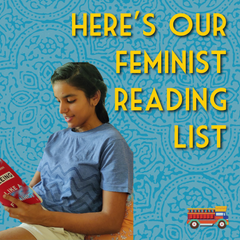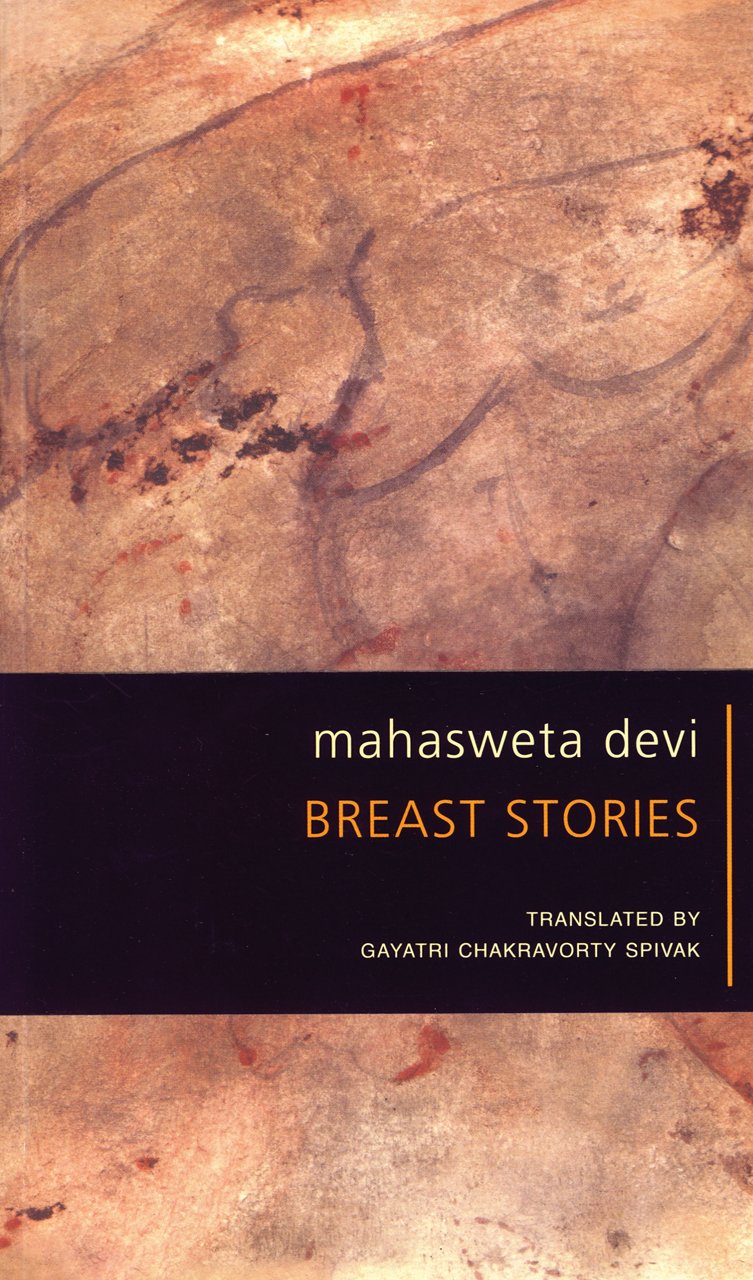An Incomplete List of Feminist Books We Should Read To Be Better Feminists

This Women's Day, we at Tamarind Chutney are celebrating by...reading! And we invite you to join the party. Whether you're just exploring what feminism means or looking to deepen your understanding, there's something for everyone here:
1. We Should All Be Feminists - Chimamanda Ngozi Adichie

If you’re hesitantly venturing into the world of feminism, wondering what being a feminist means and whether it’s for you, award-winning author Chimamanda Ngozi Adichie’s essay is the perfect starting point for you. Many of us have been called (or perhaps, have wanted to call someone) a “feminist” in an insulting tone, as if the word means “terrorist”. Adichie starts here and using her own experiences and incisive understanding of the politics of the world, explores what it means to be a feminist today. You can read the book or watch her viral TEDx talk.
2. The Second Sex - Simone de Beauvoir

Simone de Beauvoir’s The Second Sex is a seminal feminist text and so it had to make it onto our list. Despite being written in 1949, the book remains as relevant today as it was when it was written - and we’ll let you decide whether that’s a good thing.
Beauvoir provides a powerful analysis of women’s history and condition, asking what it means to be a “woman”, and breaking down the myths that bind women to their inferior position as the “other”. If that sounds like a lot of work in one book...that’s because it is. It’s a bit dense, full of existential philosophy, and will keep you up at night feeling both optimism and horror about where we are today. Hey, it’s not a feminist classic for nothing!
3. Seeing Like a Feminist - Nivedita Menon

Moving beyond the realm of theory, how do feminists think about real-world issues of power? Nivedita Menon’s powerful Indian feminist book answers this question, to show us what the world looks like when you’re Seeing Like a Feminist. From sexual harassment charges to the challenge of caste to feminism, laws against indecency to the now-defunct Section 377, Menon analyses how feminism complicates the issues of the world and how small wins and gradual transformations challenge the patriarchal status quo.
4. Invisible Women: Exposing Data Bias in a World Designed for Men by Caroline Criado Perez

We live in a world that’s obsessed with data - if you don’t have the numbers to back up a claim, nobody’s going to take you seriously. Caroline Criado Perez’s Invisible Woman uses data to her advantage, bringing out what’s true about the cliche “it’s a man’s world.” She provides a hard-hitting expose of how gender inequality is affected and enhanced by a gender data gap that erases women’s accomplishments, experiences and needs across industries, from technology to medicine trials putting women’s lives at risk.
5. Girl, Woman, Other - Bernardine Evaristo

Non-fiction isn't the only way to understand feminism. Check out Evaristo’s Girl, Woman, Other, which won the Booker Prize in 2019 and thoughtfully deals with the complexities of intersectional feminism within a narrative form. The book portrays the interconnected stories of twelve black British women as they navigate questions of fluid, multi-layered identities, “otherness”, and coming together. As readers, we develop a more nuanced understanding of what inclusive, intersectional feminist politics looks like.
6. Breast Stories - Mahasweta Devi

Few other things are more sexualized in modern culture than the breasts. Breast Stories is a set of three short stories originally written in Bengali by feminist writer and activist Mahasweta Devi, and then translated into English in 1997 by Gayathri Spivak. Each of these stories run with a common theme: the breasts as a symbol of exploitation of women from marginalized communities. This is an important Indian feminist book that forces us to reckon with the grim reality of the systemic oppression of marginalized women and how it operates even today.
7. The Weave of My Life: A Dalit Woman’s Memoirs - Urmila Pawar

Is there only one kind of feminism, or one kind of feminist? Can there be a unified Indian feminist history in a society divided by intersecting inequalities? This is a question feminists have had to reckon with, and Dalit feminism has been one of the most powerful challenges to mainstream privileged upper-caste feminism that have forced this reckoning.
In The Weave of My Life, activist and award-winning writer Urmila Pawar narrates her story: the story of three generations of Dalit women and the caste oppression they face and fight to transcend. Within this intimate narrative, we comprehend the lived realities of double oppression by caste and gender that mainstream savarna feminism cannot access. This book is a must-read to develop a more inclusive, sharper feminist politics.
8. Bad Feminist - Roxane Gay

Are you a feminist but can’t help dancing to misogynist rap music? This one’s for you. PS: You’re not the only one. Bad Feminist is a collection of essays in which Roxane Gay explores being a feminist while also loving things that may contradict what feminism stands for. What we love about it is how it embraces the messiness of being a feminist, the constancy of change, and the challenge to mainstream narratives of feminism - and who they leave out.
This list is only a starting point and just like our feminisms, it'll remain a work in progress. But if you're looking for even more books (because you're super cool!), we've got some notable mentions curated by our Instafam (you can find us on Instagram at @thetamarindchutney):
- Americanah - Chimamanda Ngozi Adichie
- Death of Vivek Oji - Akwaeke Emezi
- Living a Feminist Life - Sara Ahmed
- The Handmaid's Tale - Margaret Atwood
- Moxie - Jennifer Mathieu
- Becoming - Michelle Obama
- Where the Crawdads Sing - Delia Owens
- Lean In - Sheryl Sandberg
- Homecoming - Yaa Gyasi
- Woman on the Edge of Time - Marge Piercy







